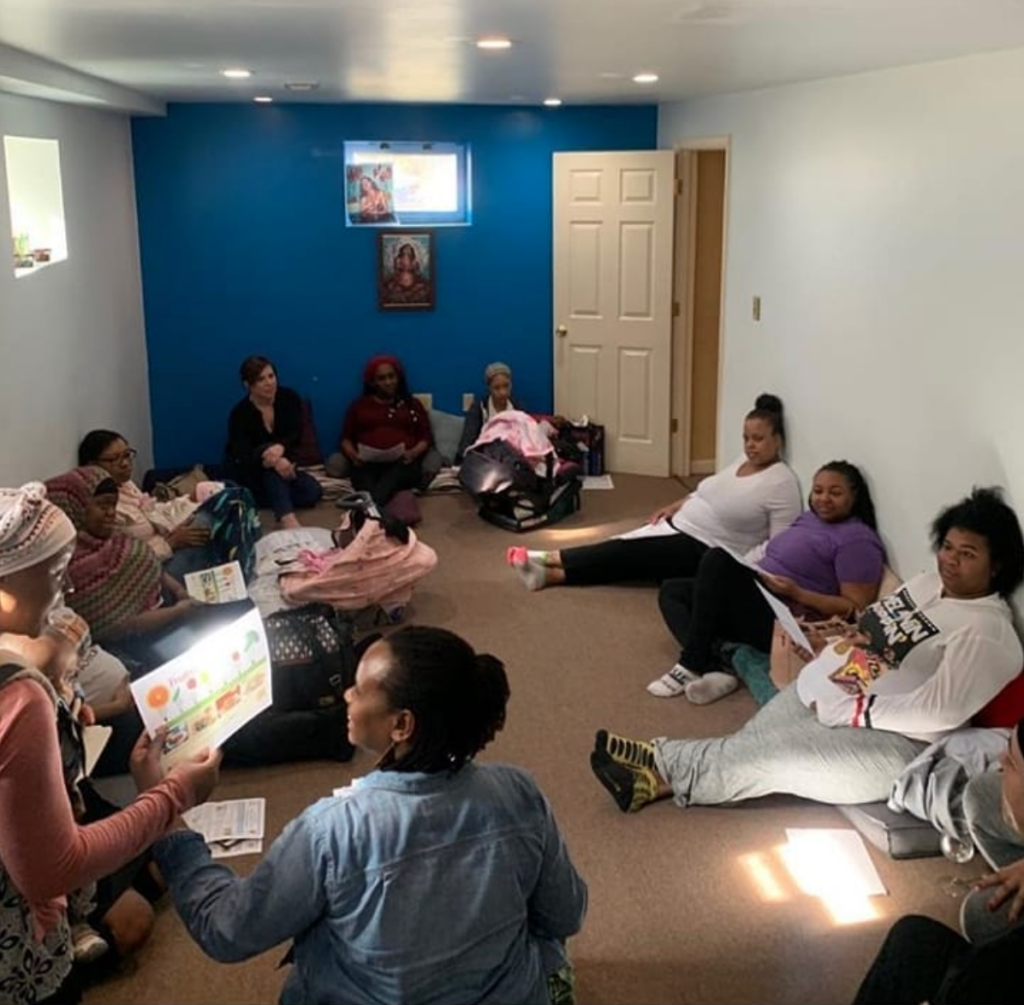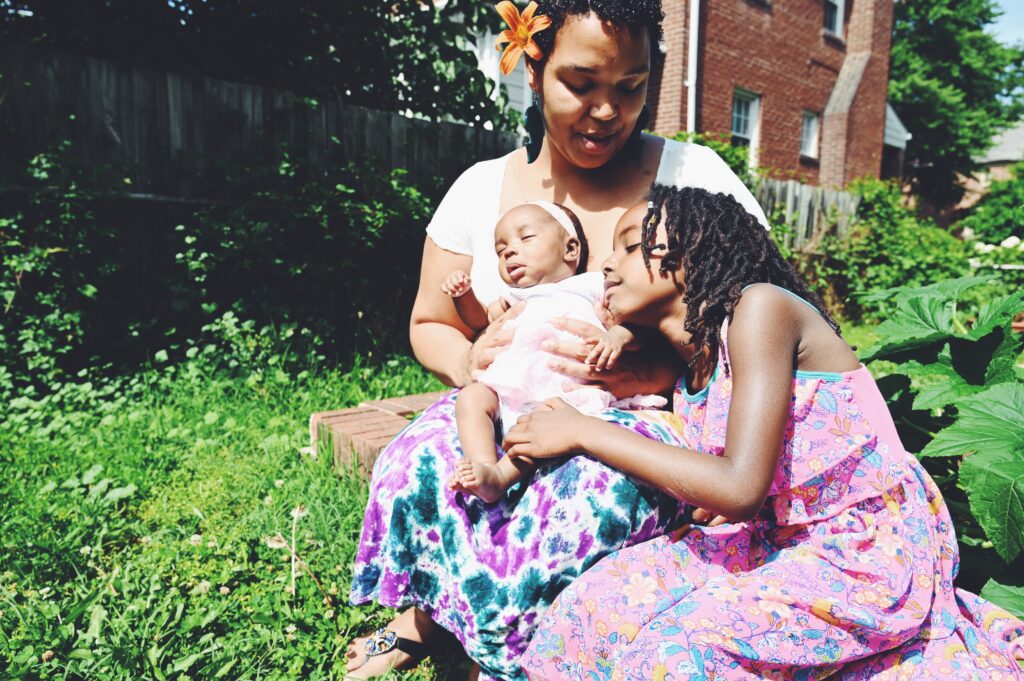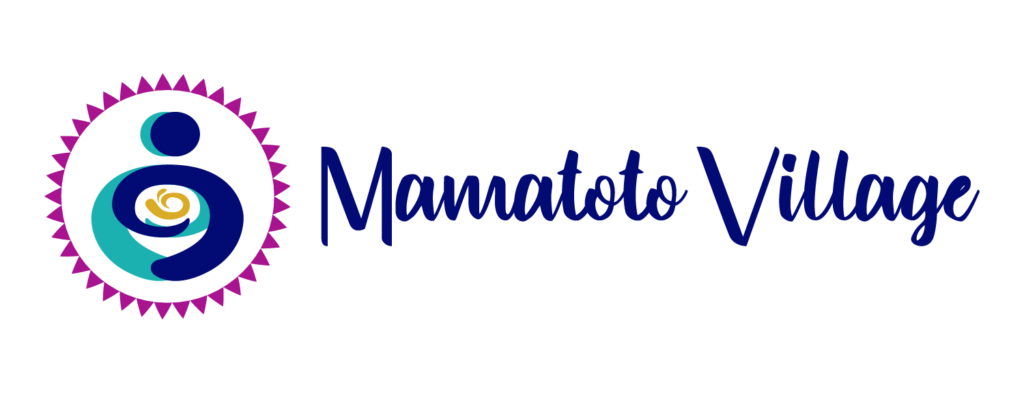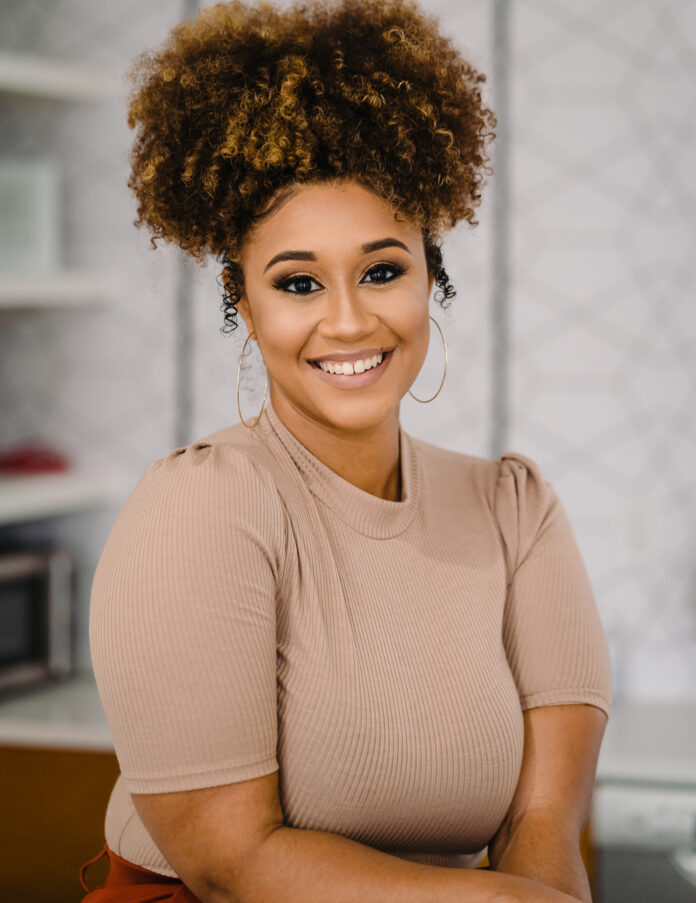( ENSPIRE She Did That ) Mamatoto Village’s New Campaign Builds an Online Community of Affirmation for Black Mothers
ENSPIRE Contributor: Adam Cetorelli
Mamatoto Village is a Black maternal health non-profit that serves Black women and birth givers in Washington, DC, and Prince George’s County, MD. They offer a variety of services, including one-on-one and group breastfeeding education and guidance, Community Birth Workers who–like doulas–educate and emotionally support birth givers and their partners, at-home postpartum assistance, and more. Mamatoto Village’s website is a wealth of knowledge, and the organization has even published “A Black Mama’s Guide to Living and Thriving,” available online, free of charge.
The newest element of Mamatoto Village’s comprehensive Black maternal support network is the Letters to Black Mamas campaign, which seeks to reassure Black mothers and birth givers of their strength and child-rearing abilities. Studies have shown that 44% of Black women experience symptoms of depression two weeks after delivery and that Black women are 57% less likely than white women to receive treatment for postpartum depression because of a lack of access to care. With so many Black women experiencing pregnancy-related mental health issues and such a gap in resources for them to get the help they need, community support is vital, and the Letters to Black Mamas campaign is an effort to build a network of Black mothers affirming each other’s worth–both as individuals and as parents. I interviewed Mariah Oates, the communications manager for Mamatoto Village, to learn more about the recently launched campaign and how Black birth givers can take part in this important project.
What made you decide to start the Letters to Black Mamas campaign? Will it be a long-term campaign, or is it only for Mental Health Awareness Month 2021?
The idea sparked from Mamatoto Village’s Executive Director, Aza Nedhari. She came to me one day and said she had this idea to provide letters of encouragement to some of our clients for Mother’s Day and we could make it a whole campaign. I loved the idea and thought it would be impactful to have moms do video letters encouraging other moms going through similar experiences as them. I loved the idea of having the videos shot in a documentary style so it felt more intimate. I know that 2020 took a lot out of everyone but I know from personal experience the toll it took on me as a mother, so I wanted to provide hope to those who may suffer in silence. That’s how Letters to Black Mamas came about. It started as a Mental Health Awareness campaign, but the feedback we received led us to make this a long-term campaign. The written and video letters are timeless and can serve greater purposes later down the road.
How does this campaign fit into the larger mission of Mamatoto Village?
Mamatoto Village’s vision statement says, “Healthy Mamas. Healthy Families. Healthy Communities.” We really try to foster a space for resilience, build upon women’s strengths, and encourage families to adopt healthy lifestyles that promote community transformation. This campaign extends that. We wanted to cater to the mental state of mothers because we know that if the mother isn’t well, it makes it more difficult for the baby to be well, and in turn, affects the family. As an organization, we provide services designed to equip women with the tools to make the most informed decisions in their maternity care, parenting, and lives while ensuring that they feel genuinely and intentionally supported. This campaign is a reminder to Black mothers and birthing people that although mothering journeys vary, we are all in this together.

What are some of the recurring themes in these letters, and why do you think these themes keep coming up?
Balance, Mom-Guilt, and Depression were common themes and I can’t say I’m surprised. I’ll speak to Balance first. Before and during the pandemic, we have known moms to carry a lot of weight. They take care of the home, take care of the babies, manage full-time roles at work, throw in a side hustle or two, and then try to take care of themselves. Some moms may not have any help. The pandemic amplified how much moms have on their plate and sometimes balance looks like just making it through the day.
Next is Mom-Guilt. A lot of us exist between the intersection of ambition and parenthood. If we spend too much time building our careers, then we risk missing out on moments with our children. It’s a sacrifice that can lead to true mom-guilt. DC Councilmember, Christina Henderson, said in her letter that “‘Guilt is for the guilty. Have you intentionally done something wrong in your role as a mother?’ Let that sink in. You are making a decision that is best for you and what you need in that moment is not guilt.” That really hit home for me personally so I know that was a resonating factor for many.
Lastly, Depression – Let me just keep it plain. Women of color are at a higher risk of experiencing postpartum depression than white women and less likely to receive the care they need. Antepartum Depression (depression during pregnancy) and Postpartum depression (depression after pregnancy) are still taboo topics that aren’t discussed enough. I could go on a whole rant about it but I am so grateful to the moms who covered this topic in their letters and provided encouragement and suggestions for how to get through it.
One reason this campaign is so interesting is its balancing of the personal with the community. It is difficult to definitively identify a letter as directed to oneself, one’s mother, or Black mothers in general—and this vagueness makes the campaign all the more powerful. Was this an intentional outcome, or was it a serendipitous revelation after the letters had been assembled?
Wow! I’m so grateful that you could get that from this campaign. It was an intentional outcome. We all go through different experiences at different points in our lives so when creating this campaign, it was important for us to have vagueness and variety so that these letters can be used at the most needed time.

In addition to launching the Letters to Black Mamas campaign, you submitted your own video letter. What was it like to be on the other side of production and share your personal story on a public platform?
I was so nervous and anxious. Being behind the scenes allows me to craft narratives and make others look good. Doing it for myself was nerve-wracking! I can say writing my letter was easier than I expected. It was therapeutic to share my journey in a way that encourages the next woman who may be going through the same thing. This campaign pushed me to be vulnerable! As women, we are always taught to be “the strong one” so I knew it was important for me to say, I went through all of this and I’m strong because I took the steps to make it through. I know healing lives on the other side of truthful story-telling so although I was nervous, I’m very happy I did it!
How can people submit their letters, and who should consider sending one in?
We are currently accepting letters through our submission form here. We are taking letter submissions from Black mothers and Black birthing people nationwide. There is a drop-down menu on the submission form with topics that you can choose from or input your topic. The letters are meant to be written to another Black mama who may be experiencing a similar journey as you.

To learn more about the services offered by Mamatoto Village, visit their website at www.mamatotovillage.org.







